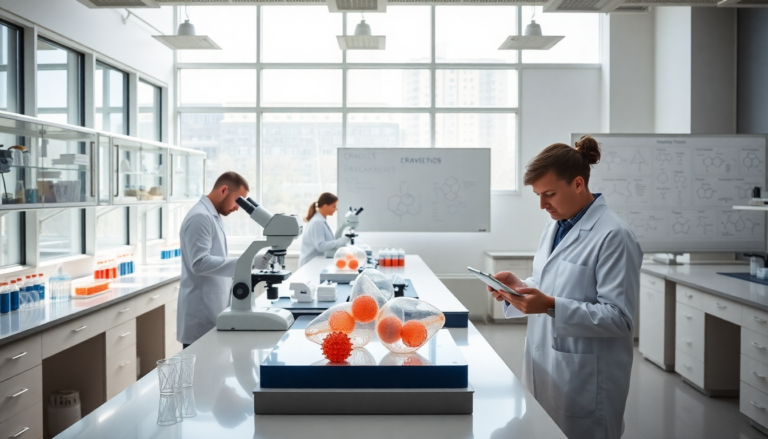Argomenti trattati
Imagine a world where your cancer treatment is tailored specifically for you, down to the last cell. Sounds like science fiction, right? Yet, here we are, teetering on the edge of a medical revolution, where GSK scientists are deploying digital biological twins and organoids to craft bespoke solutions for cancer patients. Professor Tony Ng, the brains behind GSK’s Translational Oncology Research Hub, is at the forefront of this initiative, leading a trial that aims to create detailed replicas of lung cancer tumors for 200 NHS patients. And, oh boy, do we need it! Because let’s face it, the current cancer treatment landscape looks like a game of roulette – just spin the wheel and hope for the best!
The scientific playground
At GSK, the focus isn’t just on slapping a Band-Aid on the cancer crisis. They are diving into four therapeutic areas: respiratory, immunology and inflammation; oncology; HIV; and, surprise surprise, infectious diseases. It’s like a buffet of medical advancements, and who doesn’t want a plate full of that?
This isn’t just about keeping the lights on; it’s about flipping the script on high-burden diseases, particularly in low-income countries. GSK is on a quest to make sure that prevention and treatment of infectious diseases aren’t just fancy terms thrown around at conferences but actual realities for those who need it the most. Because, let’s be real, a world where life-saving treatments are only available to the wealthy is about as appealing as a root canal, wouldn’t you agree?
The double-edged sword of affordability
We hear a lot of noise about affordable medications, but what does that even mean? GSK claims they’re making strides with responsible pricing and strategic access programs. Sounds noble, but we all know that the road to hell is paved with good intentions. Just ask anyone who’s tried to navigate the healthcare system while battling a chronic illness.
So, while they’re busy patting themselves on the back for their “commitment” to affordable healthcare, one can’t help but wonder if it’s all just a ploy to keep the masses placated. After all, if you can’t afford your meds, are you really living, or just existing?
Planetary well-being or corporate jargon?
And then there’s the whole “net-zero, nature-positive” agenda. GSK has set ambitious goals for 2030 and 2045. Great. But will it really make a difference? Or is it just another corporate buzzword salad? Because at this point, who really believes that big pharma cares about the planet? They’re more likely to be found sipping cocktails on a yacht while the rest of us are left to fend for ourselves.
Culture eats strategy for breakfast
To deliver positive health impacts, GSK insists they need to attract and retain the best talent. But let’s not kid ourselves; talent is one thing, and true innovation is another. Will the corporate culture support real change, or will it drown in a sea of bureaucracy and backroom deals?
They say their culture guides people to do the right thing. But in a world where profits often trump purpose, it’s easy to be cynical. And let’s not forget the very real concerns of quality, safety, and reliable supply of products. Because if there’s one thing we’ve learned, it’s that when it comes to health, cutting corners can have dire consequences.
Looking ahead
As GSK prepares to unveil its first-quarter results for 2025, the reality is that they are at a crossroads. Will they continue to push the envelope on innovation and truly make a difference in the world of cancer treatment, or will they succumb to the age-old practices of the industry? Only time will tell. But one thing is for sure: the stakes have never been higher.
So, as we sit at the edge of our seats, waiting for the next big breakthrough, let’s keep our eyes peeled. Because when it comes to healthcare, we deserve more than just empty promises and half-hearted attempts at change. We need action, and we need it now – or we might as well throw in the towel and accept that we’re all just pawns in a game we didn’t choose to play.

